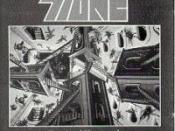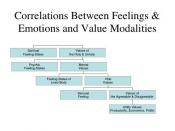Effects of Music-elicited Emotion on Long-term Memory
Abstract
The purpose of this study was to examine the effect of music-elicited emotion on long-term memory. 288 participants were selected from undergraduate psychology students, who were exposed to one of the three types of music tested (happy, neutral and sad). A mood survey and long term memory test were completed by participants a week after they exposed to the visual stimuli. It was hypothesised that at lease one emotionally arousing (happy and/or sad) has effect on long term memory. More specifically, memory-enhancing effect of negative emotion (sad music) is thus considered to be better than happy and neutral emotion arousal. The results however indicated that only those who were exposed to happy music tend to recall better than the other two groups. It was concluded that a happy music-elicited emotion affects long term memory.
�
Long term memory (LTM) is just like a large-capacity repository of one's permanent memory.
As Berk (2006) stated that the longer we hold information in working memory, the greater likelihood that it will transfer to the third, and then the largest storage area. Working memory or short-term memory (STM) is defined as the 'conscious thought', which is the place where all conscious perceives, feels, compares, computes and reasons rake place. The process that controls movement going from working memory into the long term storage is called encoding, while retrieval or remembering is the process that controls the flow of information from the long-term store into working memory (Gray, 2002).
The emotional component has a crucial role in memory encoding and retrieval (Cahill, Prins, Weber and McGaugh 1994). In Quevedo et al's (2003) study, they investigated the differential effect of emotional arousal in short and long-term memory in healthy adults. Thirty-one volunteers were divided into two...


